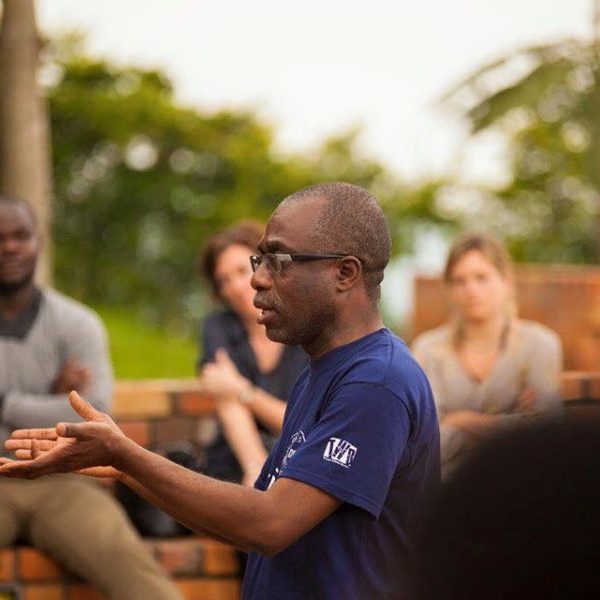Ikhide Ikheloa is the intellectual conscience of the African literary community. He writes insightful commentaries on literature and culture, but he’s also the one who calls out everyone on their BS and makes sure that we all look critically at our work as writers, intellectuals, and influencers.
In recent years, he’s been an avid proponent of innovation in African literature. He has repeatedly asked writers to abandon traditional modes of fiction writing and publishing for something more organic to social media and other digital technology.
Here is a recent post he made on Facebook outlining why writers, publishers, and critics urgently need to abandon old ideas about writing and publishing.
***
This summer has been interesting for me; in the dying days of the summer, I can boldly say I did not read a single book. I did read nonstop. I was on social media and the Internet, reading like a scavenger.
On balance, African literature is witnessing a renaissance; I would say again however that African literature suffers the crushing burden of alienation – from what gets lost in the translation.
We are steeped in the oral tradition of storytelling where I am from. Writing in standard English is one thing, but having to squeeze our way of life into the words and the idioms, etc. that the other understands has come at a steep price.
Some of the fiction I’ve read have filled me with despair, what is the point of this writing? Much of it is Eurocentric mimicry, ideas squeezed into alien genres. But then, until the advent of the Internet, the African writer could not afford to be insular like his/her Western counterpart. Sure there was Onitsha Market literature but it ended up being treated as second or third class to the works of the Achebes and the Ngugis. Because the works of the Achebes and the Ngugis were more acceptable abroad.
The Internet is changing that. I have been reading the works of many young writers who simply write. They simply write and entertain and educate us. They are so many, from Hymar Idibie David to Temidayo Ahanmisi to Akintunde Aiki, and in between, a generation entertains with awesome stuff – for free.
They probably will never get that contract from Random House or Faber and Faber because the white man will never understand these sentences. But they are our sentences, that is the tragedy of it all. We need our own publishing houses, robust ones. Or better yet, we need a new business model, let’s call it the Linda Ikeji model. Yes.
Hear me out. I imagine an eclectic site like Ainehi Edoro‘s Brittle Paper; there is “literary discourse”, whatever, there is “literary gossip” you know, drunken writers tweeting insults at each other in the cafes of Europe, all of it funded by their white patrons, there is a space for serious essays like the ones Oris Aigbokhaevbolo trots out, there is the truly indigenous writing I speak of that I feature on my wall, like the one below by Eketi Edima Ette. THAT is a lot of traffic for really good stuff that people will buy ads for. Why are we still pining for book contracts when we can easily put together a business like this?
The book model is pretty much not sustainable today. People are reading other things. I hate to be crass, but there are so many opportunities for writers and artists to be fed even as they feed us the readers. Right now, I am reading really cool stuff for free. Like this one below. That is not right. But who is complaining? Y’all be hating on Linda for “plagiarizing” your nonsense when you could be plagiarizing her business model and wailing all the way to the bank. I have said my own. May the day break. *grabs chewing stick*
*********
Post image by Writivism.









Frank Okah January 13, 2018 20:09
Can we just keep writing the good stuffs? In this way, we may finally aggregate enough readership to milk and sustain the writers' penmanship.